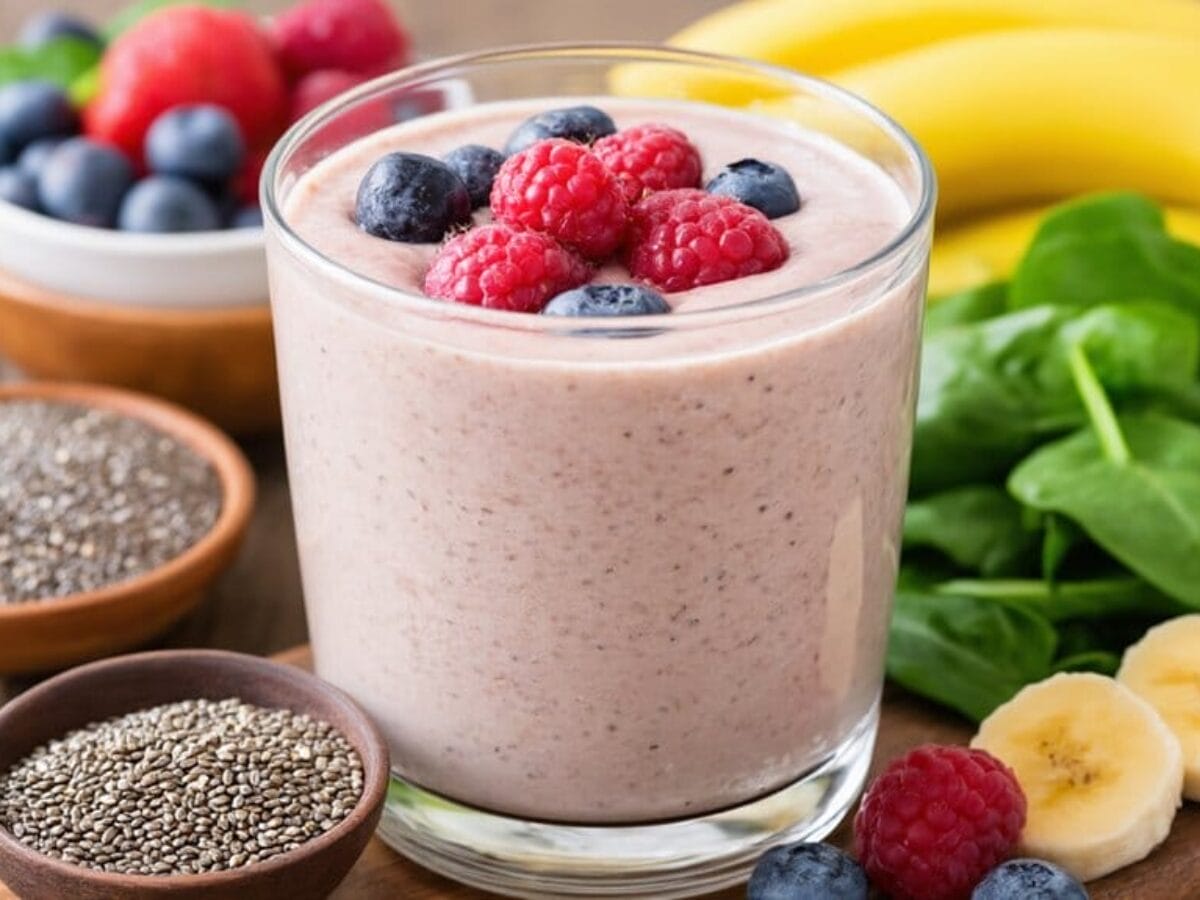Have you ever considered that collagen might be the key to easing your constipation woes? Surprisingly, this powerhouse protein not only supports skin elasticity but also plays an essential role in digestive health. By strengthening your gut lining and soothing your digestive tract, collagen can improve your overall gut function. Curious about how it works and what you can do to harness its benefits? Let’s explore the fascinating connection between collagen and digestive relief.
Key Takeaway
- Strengthen your gut health: Incorporate collagen into your daily routine to reinforce your gut lining, which is crucial for smooth digestion and regular bowel movements.
- Enhance your digestive function: Choose hydrolyzed collagen peptides for easy digestion, helping to alleviate those pesky constipation symptoms and keep your tummy happy.
- Boost your gastric health: Focus on collagen’s amino acids, especially glycine, to stimulate gastric acid production and improve nutrient absorption. Your body will thank you!
- Stay hydrated from within: Add collagen to your diet to increase hydration in your gut, resulting in softer stools and a more comfortable digestive experience.
- Combine collagen with fiber: Pair your collagen intake with fiber-rich foods for an extra boost in digestive regularity, setting yourself up for optimal gut health.
- Embrace the wellness journey: Start small by adding a collagen supplement to your morning smoothie or oatmeal, and watch your digestive health improve, giving you that radiant glow you deserve!
Understanding Collagen and Its Functions
When you think about the proteins in your body, collagen mightn’t be the first one that comes to mind, yet it’s absolutely crucial. This key structural protein makes up about one-third of the protein content in your body, providing strength to skin, cartilage, and tendons.
Collagen’s unique triple helix structure offers the support your connective tissues crave. After age 20, though, your collagen production drops considerably, which can affect skin elasticity and the integrity of muscles and bones. Collagen supplements gut health can play a vital role in countering these effects and maintaining overall wellness.
With at least 28 types of collagen, Types I and III are the most abundant. Plus, don’t forget—your body needs vitamin C to synthesize collagen effectively, helping to stabilize that all-important triple helix structure. Additionally, supplementing with hydrolyzed collagen supplements can significantly enhance your body’s collagen levels and overall health.
The Role of Collagen in Digestive Health
Collagen plays a crucial role in your digestive health, acting as a key player in maintaining the integrity of your gut lining. By supporting the production of essential proteins and mucus, collagen helps create a healthy environment for digestion, which can lead to more regular bowel movements. If you’re looking to improve your gut health and potentially ease constipation, boosting your collagen intake might just be the ticket you need! Additionally, studies have shown that collagen supplements can enhance gut barrier function, further promoting digestive wellness. Furthermore, the consumption of collagen can also support skin elasticity, which is a benefit that complements its digestive health advantages.
Collagen’s Impact on Digestion
If you’ve ever wondered how to keep your digestive system running smoothly, consider the often-overlooked hero: collagen. This powerhouse protein plays a crucial role in maintaining healthy digestion.
Here’s how collagen helps:
- Strengthens the Gut Lining: Collagen supports the structure and integrity of your intestinal lining, essential for proper digestion.
- Repairs Damage: It promotes the repair of the gut lining, reducing inflammation and alleviating digestive disorders.
- Enhances Mucosal Health: Collagen peptides boost the production of gastric mucosal cells, protecting your stomach from damage.
- Regulates Bowel Movements: Increased collagen intake improves gut motility and hydration, helping combat constipation.
Gut Health and Collagen
Your gut health is more than just a buzzword; it’s the foundation of your overall well-being, and collagen plays a starring role in keeping it in tip-top shape.
This essential protein is a major component of your gut lining, ensuring its strength and integrity for peak digestive function. The amino acids in collagen, especially glycine, aid in producing gastric acid, enhancing your food digestion.
Plus, collagen may help reduce gut inflammation, easing symptoms of digestive disorders. By supplementing with collagen, you support collagen synthesis and help repair your intestinal barrier, preventing leaky gut syndrome.
A healthy gut microbiome, bolstered by collagen, can lead to improved digestion and fewer constipation-related issues, keeping your gut health on point!
How Collagen Affects Gut Bacteria
Collagen’s got some serious benefits for your gut health! It not only helps keep your gut lining intact, but it also nourishes the friendly bacteria that keep your microbiome balanced. Additionally, collagen can support overall gut health by promoting the integrity of the gut lining, which is essential for preventing leaky gut syndrome.
Collagen’s Gut Health Benefits
When it comes to nurturing your gut health, you might be surprised to learn that collagen plays an essential role in maintaining a balanced digestive system. This powerhouse protein supports your gut in several ways:
- Strengthens the intestinal lining: Collagen helps maintain integrity, potentially reducing leaky gut symptoms.
- Amino acids for gut health: Glycine and proline, found in collagen, are critical for a healthy gut barrier and digestion.
- Boosts gut bacteria diversity: Research shows collagen can positively influence the variety of beneficial bacteria in your gut.
- Enhances mucus production: Collagen peptides aid in creating mucus, protecting your gastrointestinal tract and fostering a favorable environment for good bacteria.
With these benefits, collagen truly is a gut health champion!
Impact on Digestive Function
Understanding how collagen impacts digestive function can reveal a whole new appreciation for this remarkable protein. Collagen isn’t just for healthy skin; it plays a crucial role in gut health too!
By providing essential amino acids, collagen strengthens your intestinal lining, which can improve digestive function and reduce constipation symptoms. Hydrolyzed collagen peptides are especially digestible, making them easy to integrate into your diet.
Studies show that collagen can boost short-chain fatty acid production, promoting regular bowel movements and overall gut health. Plus, the amino acids in collagen, particularly glycine, soothe the digestive tract, helping to reduce inflammation.
Supporting Healthy Microbiome
While you might think of collagen primarily regarding skin health, it’s time to shift your focus to its remarkable impact on the gut microbiome.
Research shows that collagen can greatly enhance gut health by providing essential amino acids and supporting the intestinal lining.
Here’s how collagen supports a healthy gut microbiome:
- Strengthens the Gut Lining: Collagen helps reduce leaky gut syndrome, keeping harmful substances out.
- Encourages Beneficial Bacteria: It promotes the growth of good gut bacteria, improving your overall gut health.
- Boosts Short-Chain Fatty Acids: Collagen peptides stimulate SCFA production, crucial for a healthy microbiome.
- Enhances Mucin Production: Increased collagen intake helps produce mucin, protecting against harmful bacteria.
With a healthy gut microbiome, you’ll enjoy better nutrient absorption and improved digestive function!
Collagen’s Impact on Gut Lining Integrity
Collagen’s role in gut lining integrity can’t be overstated; it’s like the unsung hero of your digestive system. This crucial protein reinforces the epithelial barrier, which protects you from leaky gut syndrome.
The amino acids in collagen, especially glycine and proline, are essential for synthesizing collagen in your gut, supporting the health of your intestinal lining. Studies show that increasing collagen intake can help repair damaged gut lining, improving digestive function and regularity.
Plus, collagen supplementation enhances mucosal healing in your gastrointestinal tract, leading to better nutrient absorption. A healthy gut lining powered by collagen not only promotes overall digestive health but can also help keep constipation at bay.
Constipation and Its Causes
If you’ve ever found yourself straining for relief in the bathroom, you know constipation can be a real pain—literally!
It’s not just annoying; it can stem from various causes. Understanding these can help you tackle the issue head-on. Here are some common culprits:
- Low-fiber diet: Without enough fiber, your digestive system struggles.
- Inadequate fluid intake: Dehydration can lead to hard, dry stools.
- Lack of physical activity: Moving less means slower digestion.
- Underlying health conditions: Issues like irritable bowel syndrome (IBS) or hypothyroidism can worsen constipation.
Stress and age also play significant roles.
The Connection Between Collagen and Bowel Movements
You might be surprised to learn that collagen, often celebrated for its beauty benefits, plays a significant role in your gut health and can actually help keep your bowel movements regular.
Collagen supports the integrity of your intestinal lining, which helps prevent issues like leaky gut syndrome that can contribute to constipation. The amino acids in collagen, especially glycine and proline, enhance digestion and promote regularity by supporting proper gut function.
Collagen strengthens your intestinal lining, helping to prevent leaky gut and promoting better digestion and regularity.
Additionally, collagen supplementation can improve hydration in your gut, leading to softer stools that pass more easily.
Studies show that a healthy gut microbiome, supported by collagen, enhances nutrient absorption and overall digestive health.
Incorporating collagen into your diet, along with fiber-rich foods, creates a powerful combo for maintaining digestive regularity!
Foods That Naturally Boost Collagen Production
While many people associate collagen primarily with healthy skin, it’s fascinating to discover that certain foods can greatly enhance your body’s natural collagen production. Incorporating these nutrient-rich options into your diet can make a significant difference:
- Citrus Fruits: Oranges and lemons are packed with Vitamin C, essential for collagen synthesis and stabilization.
- Bone Broth: This savory delight is rich in collagen and provides amino acids vital for production.
- Leafy Greens: Spinach and kale not only boost collagen but also pack a punch of antioxidants.
- Nuts and Seeds: Walnuts and chia seeds are loaded with omega-3 fatty acids and zinc, supporting overall skin health.
With these foods, you’re well on your way to promoting collagen production and achieving vibrant skin!
How to Incorporate Collagen Supplements Into Your Diet
Incorporating collagen supplements into your daily routine can be a game-changer for your skin and overall health.
Try dissolving collagen peptides in your morning coffee, tea, or smoothie—it’s an effortless way to boost your intake! You can also mix them into soups, sauces, or even baked goods without changing the flavor.
For the best results, pair your collagen with Vitamin C-rich foods like oranges or strawberries; this combo enhances absorption and supports collagen synthesis in your body.
Consistency is key, so aim for daily intake to see improvements in skin hydration and elasticity over time.
And remember, balancing collagen with other protein sources guarantees you’re supporting your health holistically.
Enjoy the journey to healthier skin!
Potential Risks of Collagen Supplements
While collagen supplements might seem like a miracle fix for your health, they come with a few potential risks you shouldn’t ignore.
Since these products aren’t heavily regulated, you could be exposing yourself to heavy metal contamination without even realizing it.
Plus, with limited independent studies backing their safety, it’s wise to do your homework before adding them to your routine.
Heavy Metal Contamination Risks
When you’re considering collagen supplements to boost your health, it’s essential to be aware of the potential risks associated with heavy metal contamination. Some collagen products, often sourced from animal connective tissues and bones, can introduce harmful toxins.
Here are four key points to keep in mind:
- Unsafe Levels: Studies show that certain collagen supplements may contain dangerous amounts of lead, arsenic, and cadmium.
- Regulatory Gaps: The FDA doesn’t regulate collagen supplements as rigorously as pharmaceuticals, leading to inconsistencies in purity.
- Third-Party Testing: Always look for products that undergo third-party testing to verify safety.
- Reputable Brands: Choose collagen supplements from brands that are transparent about their sourcing and testing practices.
Stay informed and prioritize your health!
Regulatory Oversight Limitations
Although collagen supplements have gained popularity for their potential health benefits, the reality is that regulatory oversight for these products is alarmingly limited. The FDA doesn’t regulate them, raising concerns about their quality and safety. Contamination from toxins or heavy metals could be a risk, especially if the collagen is sourced from animals exposed to harmful substances. With few independent studies available, many findings come from industry-funded research, which could be biased.
To help you navigate these risks, here’s a quick comparison:
| Aspect | Consideration | Recommendation |
|---|---|---|
| Safety | Potential contamination | Seek third-party testing |
| Sourcing | Animal-derived risks | Check sourcing practices |
| Cost vs. Quality | Lower-priced options may lack safety | Evaluate product claims |
Be cautious and informed!
Other Lifestyle Changes to Improve Digestive Health
To boost your digestive health and keep constipation at bay, you might want to reflect on a few key lifestyle changes that go beyond just diet.
Here are four effective strategies to contemplate:
- Increase Fiber Intake: Fill your plate with fruits, vegetables, and whole grains to promote regular bowel movements.
- Stay Hydrated: Drink plenty of water throughout the day; it softens stool and supports digestive function.
- Get Moving: Incorporate regular physical activity, like walking or yoga, to stimulate your digestive system.
- Eat Consistently: Establish a regular eating schedule to help regulate your digestive rhythms.
Frequently Asked Questions
Is There a Downside to Taking Collagen?
Yes, there’s a downside to taking collagen. You might experience digestive issues like bloating or constipation, and the supplements aren’t always regulated for purity or effectiveness, raising concerns about their safety and benefits.
What Exactly Is Collagen?
Collagen’s a crucial protein that provides structure to your skin, cartilage, and tendons. It’s essential for maintaining elasticity and firmness, but your body’s production decreases with age, affecting overall health and appearance.
Which Foods Have High Collagen?
You’ll find high collagen in foods like bone broth, chicken skin, and fish skin, especially salmon. Cuts of meat like brisket also pack collagen, while gelatin and vitamin C-rich fruits boost your body’s collagen production.
Does Collagen Really Work?
Collagen supplements might help some people, but their effectiveness isn’t guaranteed. You should consider a balanced diet and topical treatments for skin health instead of relying solely on collagen to see real results.
Final Thoughts
Incorporating collagen into your diet can be a game changer for your digestive health and constipation relief. By enhancing gut lining integrity and supporting nutrient absorption, collagen not only helps you feel better but also promotes regular bowel movements. Plus, with natural food sources and supplements available, it’s easy to add this powerhouse protein to your routine. So, why not give it a try? Your gut will thank you, and your bathroom visits might just become a little more pleasant!










